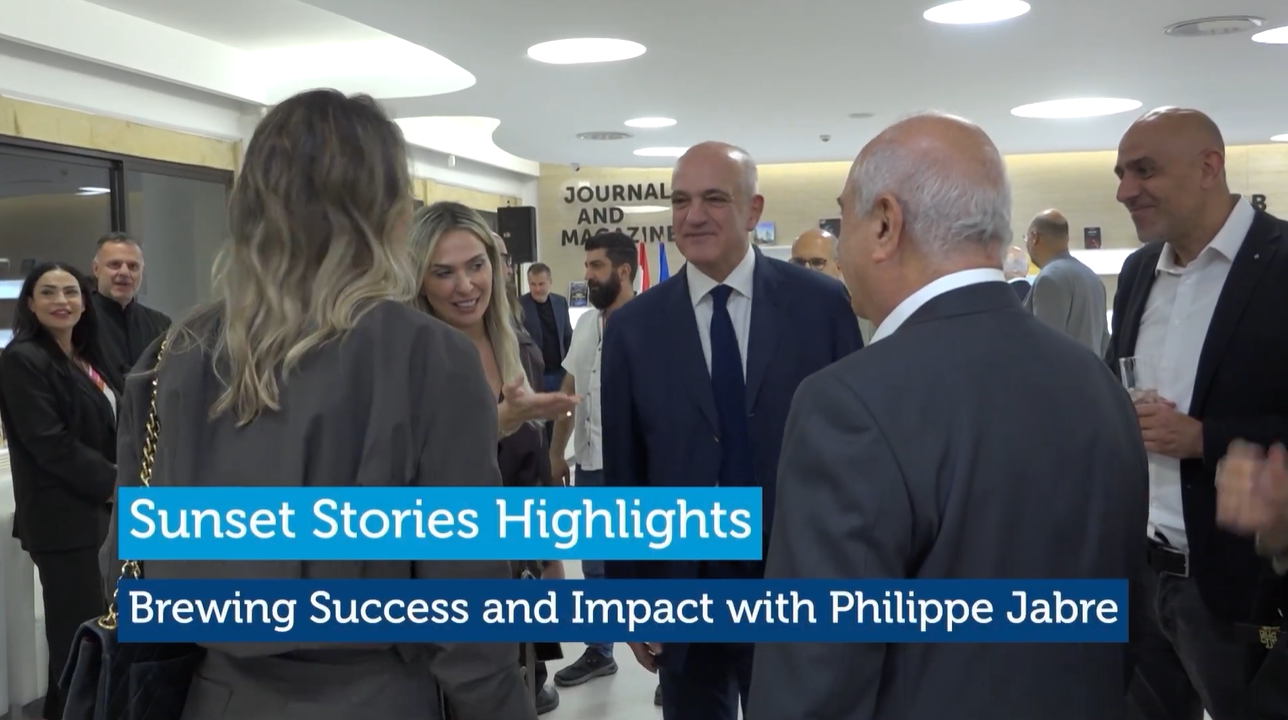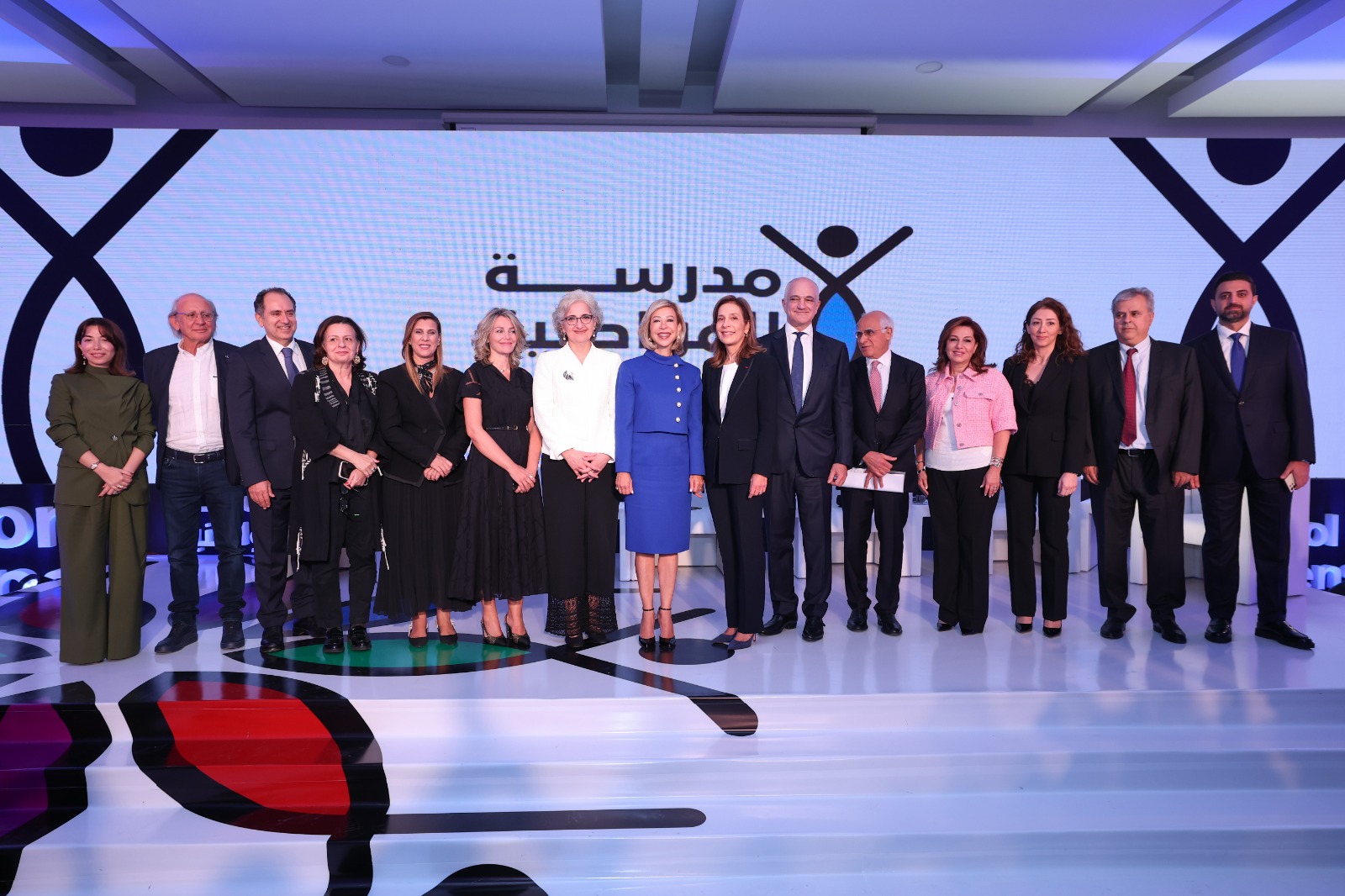
Beirut, 28 July, 2020 – Interview with APJ alumna Yasmina Sabbah, choir and orchestra conductor, and the only local Lebanese female Western-Music conductor to conduct an orchestra in Lebanon.

Yasmina leads the Université Saint-Joseph choir (Chœur de l’USJ) and the orchestra of the Jeunesse Musicales de Liban (JM Lebanon).
She has also been invited to conduct the Lebanese Philharmonic Orchestra, both last year and this year (the latter unfortunately cancelled due to Covid-19).
Yasmina teaches music at the American University of Beirut (AUB), and has also been appointed Director of Music at the Université Saint Joseph (USJ) from next semester.
Q: Where does your passion for music come from?
Since I was a child, I always loved music. My mother is a music teacher, and so I started by learning the piano, singing in choirs, and creating music.
How did you decide to make music your profession?
When I was younger, I knew I wanted to be involved in music, but how exactly, I did not know. There was not much guidance available to young people in Lebanon.
I first studied in a different domain, and in the meantime got the opportunity to lead a children’s school choir. This opportunity made it clear for me – conducting is something that I wanted to do.
Where did you go to further your learning and studies in conducting?
I looked around for graduate programmes in choral conducting so that I could do this at a professional level. There is unfortunately no way to study conducting in Lebanon, so I looked abroad.
With the financial support of the Association Phillipe Jabre (APJ), I succeeded in getting into Cambridge University to do a Master’s in Choral Studies.
What made you choose this university?
Cambridge is known for its leading choirs and performances, and the country offers such richness in choral music. The programme I did has world leading teachers, and we were able to experience different conductors across the different colleges.
When I came back to Lebanon, I got a position to conduct the USJ choir which was still at its genesis. Now, five years later, we are more than 80 singers, presenting major works, and doing big productions with different orchestras, including with the Lebanese Philharmonic Orchestra.
What made you decide to return to Lebanon?
I decided to come back because it is important to give back to your own community and country, and to make a difference, to build and to give chances to new generations to improve our own country.
What changes would you like to see in Lebanon’s universities in the field of music?
Currently, universities either do not offer music programmes, or the programmes are rather restricted. We need to expand our majors and have more selections and accredited programmes which can help students to go abroad.
Our country’s leading universities do not offer Music as part of their programmes. This is something that I would like to work on and change, especially through the USJ where I will start working full time from next year.
Even in schools, music is largely seen as a side activity. Why is that? So many students have real musical talents. It shouldn’t be just about studying to be an engineer or a doctor, it’s important to understand that music is a legitimate career path and not just a hobby.
How can this change be enacted?
It should be a change across all levels, and specifically across the following three.
Firstly, parents need to have a better orientation to encourage their children to take music seriously, and encourage them to continue their studies in this field and to pursue a career.
Secondly, students themselves should not limit themselves to the first diploma they get, and take on gigs instead of continuing to work on their skills further. Aim to go abroad where many of the higher studying opportunities are, and then come back to build for the country.
And thirdly, institutions need to help students achieve the required level to go abroad to continue their studies. Then they need to be able to provide for the students who come back to Lebanon, and enable them to find work.
What are the employment prospects in music?
Classical music is booming in the country, although there are not many Lebanese musicians who play at the professional level. The more we expand, the more work opportunities there will be. But it is also down to the individuals to create and build their own opportunities – we cannot simply wait, we need to take initiative.
The Lebanese Philharmonic Orchestra for example, which has a great reputation, has plenty of room for professional Lebanese musicians to join.
How have the recent economic and health crisis affected music and arts?
I had a big concert this month with the USJ choir featuring Mozart’s Requiem which was broadcast live on television. This was for me a big message to Lebanon that despite Covid-19 and the financial situation, we will find the way.
Culture is a major pillar in Lebanon and we should not let it down. It is the only thing we now have left.
What was it like to organise a classical concert in such times?
It took extraordinary efforts to organise and hold this concert!
We not only received funding from generous donors, people also volunteered their time to help make the event happen.
We then had to adapt to respect the physical distancing. Between each singer there was one meter, which meant that there was a forty-meter distance between me and the last singers in the back row! This resulted in crazy challenges, including sound delay, which we managed to solve together with our sound engineer and by all working together as a team alongside many generous people.
This proves that despite the crazy and at times depressing situation in Lebanon, we need to fight for music, because it is so important for everybody.
So music itself can be a key pillar for rebuilding Lebanon?
Yes, when we make music or art, the entire country comes together despite any differences. It is something pure and beautiful, which helps us forget all the bad things we are going through. No one can take this away from us.
What message would you share with current students and graduates?
Believe in Lebanon and never be discouraged. Make things happen, even if it’s not easy, and don’t wait for others to do it for you. Try to make your own opportunities – this is the only way to build the country together.
Lastly, what is your personal day-to-day philosophy?
I am quite rational and goal oriented. I wake up every morning and ask myself: what do I need to do, in order to achieve the goals and objectives that I’ve set myself. I don’t wait, I move forward to get things done.
You can play back the recording of the live fundraising concert held on 26 July 2020 which was conducted by Yasmina Sabbah, entitled “There will ALWAYS be light”, by following this link to the Choeur de l’USJ Facebook page.


